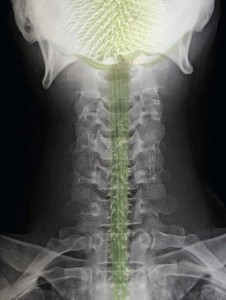On Depression and Suicide
On Depression and Suicide.
“To decide whether life is worth living is to answer the fundamental question of philosophy,” Albert Camus famously wrote — a statement that has only grown in significance half a century since. But outside of philosophy, in daily life, when the will to live or die plays out in the individual, it creates a vortex of pain and hopelessness — not only for the severely depressed person contemplating suicide, but for those who love them, notwithstanding the social contagion of suicide.
Pulitzer-winning poet Galway Kinnell (February 1, 1927–October 28, 2014) addressed this fundamental question of existence with tender compassion and spiritual grace in a poem Wait. He wrote the poem for a student of his who was contemplating suicide after the abrupt end of a romance. In this recording courtesy of the Academy of American Poets, Kinnell brings his life-changing words to life:
WAIT
Wait, for now.
Distrust everything, if you have to.
But trust the hours. Haven’t they
carried you everywhere, up to now?
Personal events will become interesting again.
Hair will become interesting.
Pain will become interesting.
Buds that open out of season will become lovely again.
Second-hand gloves will become lovely again,
their memories are what give them
the need for other hands. And the desolation
of lovers is the same: that enormous emptiness
carved out of such tiny beings as we are
asks to be filled; the need
for the new love is faithfulness to the old.
Wait.
Don’t go too early.
You’re tired. But everyone’s tired.
But no one is tired enough.
Only wait a while and listen.
Music of hair,
Music of pain,
music of looms weaving all our loves again.
Be there to hear it, it will be the only time,
most of all to hear,
the flute of your whole existence,
rehearsed by the sorrows, play itself into total exhaustion.
So how do we, when desperate not to fall down, fall down and get back up? Such is the magnificent resilience of the human spirit. Our culture is terrified by the phantom of severe depression, that claws into our humanity and takes our will to live, only for us to often then be self-righteously and un-compassionately judged by others. How, then, do we help those on the brink of self-destruction “get up and say OK?” And what does that act of help reveal about our own trials and triumphs as we learn to be OK?
That’s precisely what Diane Ackerman explores in the essay “A Slender Thread” which recounts her time working as a volunteer crisis counsellor at a suicide prevention hotline.
We use only a voice and a set of ears, somehow tied to the heart and brain, but it feels like mountaineering with someone who has fallen, a dangling person whose hands you are gripping in your own.
Ackerman recalls one particularly poignant call, with Louise — a frequent caller with many talents and a lively mind — whom she had pulled back from the brink of suicide many times before. Louise’s despair, like that of many on the downward spiral of the psyche, stems from feeling, as Ackerman puts it, void of choices. Ackerman reflects on this uniquely human possibility:
Choice is a signature of our species. We choose to live, sometimes we choose our own death, but most of the time we make choices just to prove choice is possible. Above all else, we value the right to choose one’s destiny. The very young and some lucky few may find their days opening one onto another like a set of ornate doors, but most people make an unconscious vow each morning to get through the day’s stresses and labors intact, without becoming overwhelmed or wishing to escape into death. Everybody has thought about suicide, or knows somebody who committed suicide, and then felt “pushed another inch, and it could have been me.” As Emile Zola once said, some mornings you first have to swallow your toad of disgust before you can get on with the day. We choose to live. But suicidal people have tunnel vision—no other choice seems possible. A counselor’s job is to put windows and doors in that tunnel.
Talking to Louise, Ackerman contemplates the sometimes terrifying responsibility of the crisis counsellor as a torchbearer of illuminating choice amid the black mist of the tunnel:
Every call with Louise has seemed this dire, a last call for help, and she has survived. But suppose tonight is the exception, suppose this is the last of last times? What is different tonight? I’m not sure. Then it dawns on me. Something small. I’m frightened by how often she has been using the word “only,” a word tight as a noose.
Assuring Louise that she would stay with her, Ackerman reflects on the other meaning of “only” — that of the lonesome one, gripped by our cultural anxiety of being alone.
So often loneliness comes from being out of touch with parts of oneself. We go searching for those parts in other people, but there’s a difference between feeling separate from others and separate from oneself.
When Louise laments her own weakness, Ackerman reminds her of her acts of strength, shared during previous sessions — like volunteering during the flood. “Broaden the perspective,”Ackerman writes. “The hardest job when someone is depressed.”
Because something feels different about the call — Ackerman alerts the police while on the line with Louise, who had made her promise not to bring in the authorities. When they arrive — faster than expected — Louise is enraged by a sense of betrayal, screams at Ackerman, calls her a liar, hangs up. Ackerman loses the call, holding the grim possibility of losing the life. She writes: “Knowing and not knowing about callers, that’s what gets to me”.
A few weeks after that fateful call with Louise, the Crisis Centre received a postcard from her, thanking the counsellor — always anonymous, as was Ackerman to her caller — for illuminating her tunnel. After the police had taken her to hospital, she had checked herself into a psychiatric hospital in Pennsylvania for three weeks. Upon returning home, she had found a new job to replace the one she had lost and begun volunteering again, reporting that she was finally “in a good place.”
Ackerman’s closing words emanate from the immeasurable beauty of asking for and receiving help. Beholding that postcard in disbelief, she writes:
She blesses the soul who “took my life in her hands that night,” thanks us all for our good work, is just writing “to let you know what happened — I bet you don’t hear that very often.” We don’t.
We will often find our lives taken into the hands of others — parents, mentors, lovers, teachers. How often do they hear from us?
Gallway Kinnels Wait, is Originally published in Kinnell’s1980 collection Mortal Acts, Mortal Words,
Dianne Ackerman’s essay “A Slender Thread” in the anthology The Impossible Will Take a Little While: Perseverance and Hope in Troubled Times, is adapted from her sublime 1998 book A Slender Thread: Rediscovering Hope at the Heart of Crisis
With thanks to BrainPickings for its phenomenal resources.


